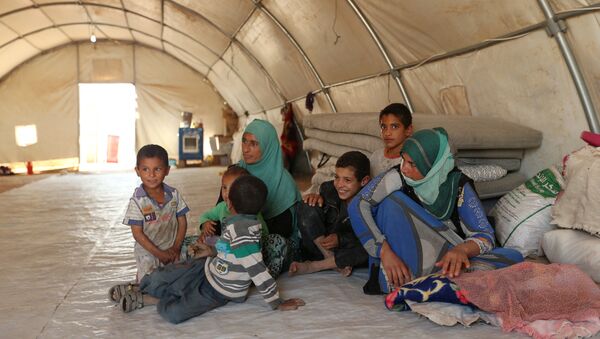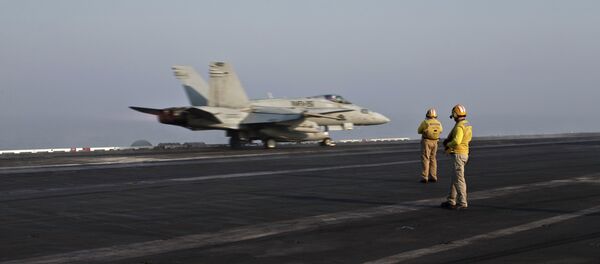“In the contest of the fight against Daesh, we saw horrific abuses happening already in September 2014, and this pattern has been repeated everywhere where Iraqi forces and militias captured territories formerly controlled by Daesh, so these were not isolated incidents. The culprits are for the most part Shia militias, who have been at the forefront of recapturing territories from Daesh. They have acquired enormous power since June 2014 and in many respects they have become more powerful that the Iraqi regular armed and security forces. They act with absolute impunity,” she said.
Speaking about measures that need to be taken to protect the peaceful Sunni population, Donatella Rovera said that Iraqi forces and militia were now engaged in a very complex military operation to recapture the city of Mosul.
“There are more than a million civilians in Mosul and all the forces participating in the operation including the US coalition, which are bombing the city from the air, must avoid targeting civilians and avoid indiscriminate and disproportionate attacks. Attempts must be made to create safe routes for civilians to escape Daesh-controlled Mosul,” she said.
When civilians manage to get out they must be ensured against any repetition of extrajudicial executions and torture that have previously happened in other parts of the country.
The Iraqi authorities describe the ongoing offensive by as one being conducted by Shia, Sunnis and Christians. When asked to comment on this official rhetoric, Donatella Rovera said that there are different components of Iraqi society present in the Iraqi security forces.
"The paramilitary militias at the forefront of abuses are predominantly Shia and act in a predominantly sectarian manner. There is a token presence of Christian and others there, but the Shia’s sectarian rhetoric is extremely damaging to the country’s unity, to the fight against Daesh. It’s absolutely unacceptable from a human rights point of view,” she emphasized.
When answering a question about what the US-led coalition could do to prevent collateral damage, Donatella Rovera said that it should bear in mind that Mosul was a densely populated place and that indiscriminate bombardments kill more civilians than jihadist militants.
She also mentioned the need for humanitarian corridors the local civilian population could use to escape.
“The jihadists try to use civilians as human shields and residents of Daesh-controlled areas are forbidden from leaving. It is imperative that when people are able to escape there is a safe route for them to get out and when they reach the other side they are not tortured, killed or abducted by the militia forces,” Donatella Rovera said in conclusion.




